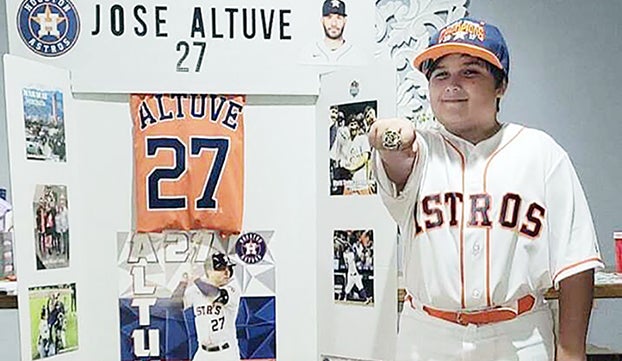NSA can’t have it, but Verizon can sell it…and more
Published 7:21 am Wednesday, November 4, 2015
By J David Derosier
Edward Snowden, traitor and former employee of the National Security Agency, told the world about classified counter-terrorist surveillance activities carried on by his former employer. He characterized the use of cellphone meta-data as an invasion of privacy and the politicians agreed with him.
Back in June I wrote about the US Congress being all up in arms about how NSA was storing and using meta-data gathered from the wireless phone companies in the government’s anti-terrorist campaigns. These intelligence gathering powers were granted by the Patriot Act passed by Congress following the 9-11 terrorist attacks.
Shortly after my editorial column printed, Congress passed a reform act to end the government’s bulk collection of private telephone records (meta-data) and to reform other surveillance policies in the Patriot Act. They made it a law that the NSA could not be trusted with the privacy issues surrounding data about phone calls; however the phone companies COULD be trusted with it.
Sen. Patrick J. Leahy (D-Vt.), described the legislation as “the most significant surveillance reform in decades”, according to the Washington Post. “We’ve done it by setting aside ideology, setting aside fear-mongering,” said Leahy, the top Democrat on the Senate Judiciary Committee. “We’ll protect the security of the United States, but we’ll also protect the privacy of Americans.”
Flash forward four months to October 21st 2015 (now). The Houston Chronicle reported that Verizon is “evolving to make more money by tracking what we watch and read on our phones”.
Verizon is now using “super cookies” to track the activities of its users when they are online, on the Internet. Why are they called super cookies? Because they are intended to be permanently stored on the user’s device (that’s right PERMANENT) and are extremely difficult to remove.
Now the wireless carriers (I am assuming that Verizon is not the only one) not only track who you talk to, where you are, and for how long; they can also track what you see on the Internet, what kinds of sites you visit, how long you stay, and where you go when you leave those sites. Is that scary or what?
And Congress wants you to believe that it’s OK for Verizon and other commercial companies to add more surveillance on you and use it for commercial gains – even sell it to the highest bidders; but it’s not OK for NSA to keep the information for purposes of National Security and Anti-Terrorism. Who’s kidding whom?
While we’re at it, let’s see what else technology allows commercial companies to do. Have you ever heard of a “Fan Cam”? A South African company by the same name has captured and keeps the images of more than 13 million fans at 380 events across 6 continents. And this figure keeps growing.
From a single image of 70,000 fans at a New England Patriot’s football game at Gillette Stadium…FanCam can zoom-in on any individual face in that image! And numerous technology companies today produce facial recognition software to identify each face in that image with a corresponding image in databases throughout the world. So if you’re on Facebook and attend a football game in Houston, your kids’ pictures might be stored in Cape Town, S.A. Isn’t that a nice thought.
So what’s the point here? Technology is the point.
Bottom line: Maybe we should be more worried about our privacy with Verizon, and Google, and Amazon, than we are with NSA. At least NSA also provides security.
We cannot and should not stop the development of technology. We cannot get away from it, only try to harness it. Our government should not be denied use of it for national security, especially to counter terrorism against us. This is most important when the rest of the world also has access to the same technology and does not hesitate to use it.
Readers, take a moment and let your representatives in Washington know that you want to be protected from terrorism, and that they should allow our government professionals to have the same (or better) tools than our adversaries do.
Also let them know whether you think Verizon and AT&T (and Edward Snowden) should be trusted more than our own National Security Agency.
For more information on the articles and items referenced above, go to the Orange Leader website.
J David Derosier is a retired technology professional and worked for several years in a business that developed technology to prevent the use of cellular devices in restricted areas, without jamming. Prior to that he worked with Fortune-500 companies in Information Security (InfoSec) with a global focus on National Security. Today he consults with small business on planning and marketing issues, and provides web design and hosting services. He can be reached at JDAVID@Strategy-Planning.info.
References:
New England Patriots FanCam. Zoom-in, Zoom-out. Look at Facebook pages.
Some comments on Super Cookies:
http://money.cnn.com/2015/01/09/technology/security/super-cookies/
One of many Facial Recognition software companies:
http://www.ifsec.co.uk/library_6/14350_assocpdf.pdf
Wireless carrier Verizon is also in the market for eyeballs
Representing Orange County in Congress:
House of Representatives: Dr. Brian Babin, 420 Green Ave, Orange, TX 77630. (409) 883-8075
U.S. Senator John Cornyn, 517 Hart Senate Office Bldg., Washington, DC 20510. (202) 224-2934
U.S. Senator Ted Cruz, 185 Dirksen Senate Office Building, Washington DC 20510. (202) 224-5922





